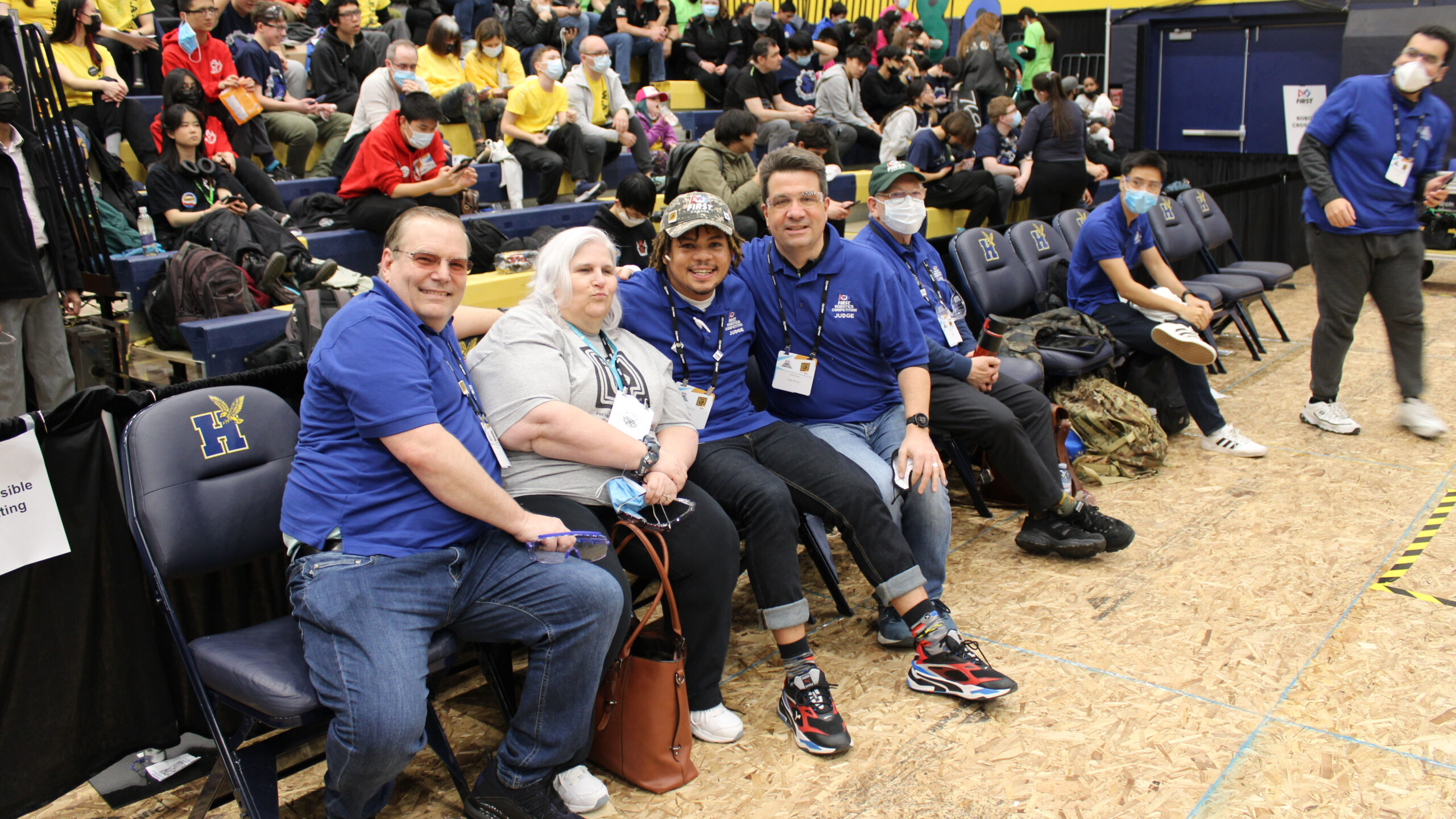Leon Zhang, the electric and programming controller of Absolute Robotics from Woodlands Secondary School, said he was heartbroken after his team missed gold at a recent competition at Humber College.
For the four weeks before the March 17 weekend competition, his Mississauga high school team toiled every day from 3 p.m. to 9 p.m. to build and fix their robot, Zhang said.
“We finished in the very nick of time, and that left almost zero time for testing, and everything that could go wrong went wrong,” he said.
Humber College hosted a round of FIRST Robotics Competition at its Athletics Centre from March 17 to March 19, with 28 teams signed up to compete. Each team played in an alliance of three teams in each round, pitted at times against their previous allies.
Absolute Robotics won bronze in this round of competition, after winning four but losing six and tying one round throughout the competition.
Zhang said his team could have performed better in the competition.
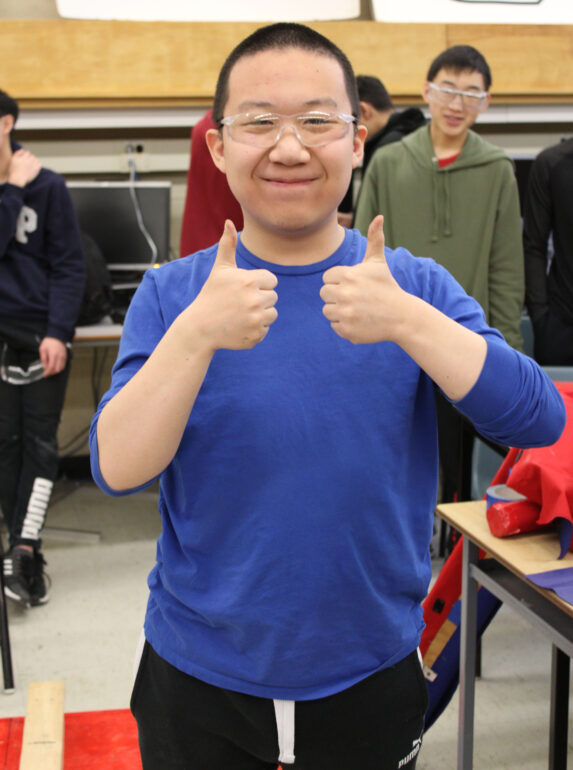
Leon Zhang, electric and programming controller of Absolute Robotics spoke to Humber News before the competition. Photo credit: Muhammad Hamza
“Unfortunately, things didn’t pan out as we expected,” he said. “But hey, that’s how life works.”
Zhang said he learned a lot of technical skills through the competition.
“Coming in, I didn’t know that much about how electrical systems worked in automotive or robotics,” he said. “Now I think I’ve gained a significant understanding.
“Also, my soldering skills have improved. I can design circuit boards with much better precision,” Zhang said.
William Neal, program coordinator of First Robotics, said he observed a quick advance in students’ understanding of various technical skills.
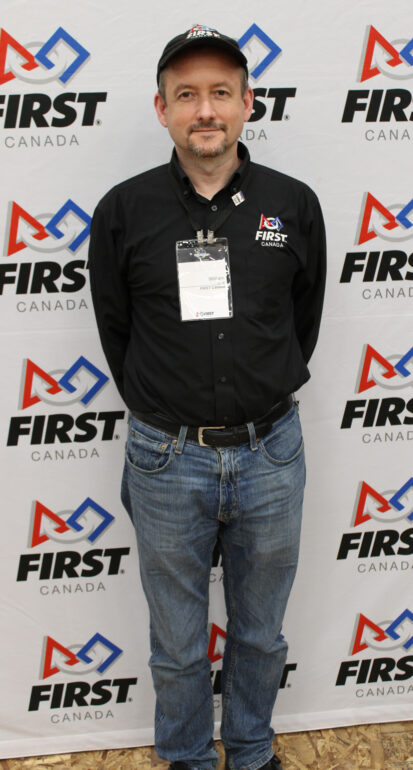
William Neal, program manager of FIRST Robotics, spoke to Humber News and briefed us about the skills students learn from the competition. Photo credit: Muhammad Hamza
“I saw rapid advancement in the understanding of how to do technological design,” Neal said. “Computer-aided design, how to manufacture, how to do coding, how to run a business, how to do advanced planning, sustainability, and succession planning.”
Zhang also said the competition has promoted communication and the idea that everyone can and should compete.
“But everyone should try to help each other and make each other the best possible,” he said. “And I think it shows that winning is not all.”
Zhang said his team are hopeful and confident about the upcoming competition in Windsor.
“We are maybe a little bit heartbroken, but I feel like everyone is optimistic that we will be able to achieve success, at least at Windsor,” he said.
Eiliyah Siddiqi, captain of Absolute Robotics, said that her team’s strategy was weak initially and led to the defeat.
“I’d say our primary weakness for the first day was not strategizing enough, but by the first few matches I got the hang of what we needed to do,” Siddiqi said.
“Another thing was that we were not using all the sensors that our bot was equipped with,” she said. “I feel like if we had a better understanding of that and how we could use it, it would have worked out a little bit smoother.”
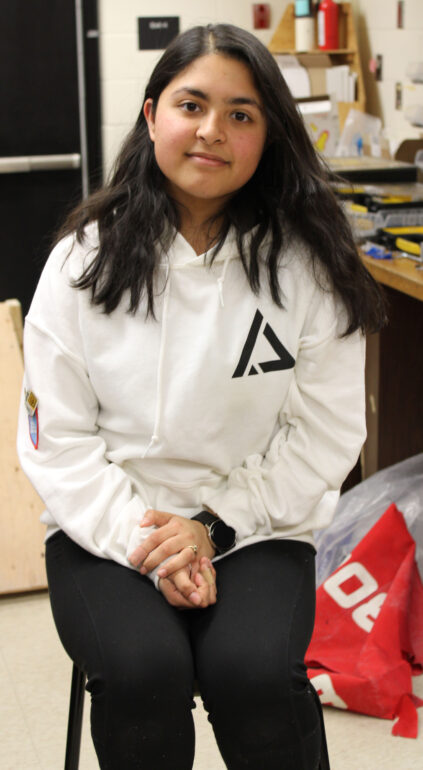
Eiliyah Siddiqi, captain of Absolute Robotics, told Humber News about the weakness of the team in the competition. Photo credit: Muhammad Hamza
But she said she is proud of the team’s overall performance.
Godofredo Balcita, coach of the Absolute Robotics team, said if his team used sensors properly, the result might be better.
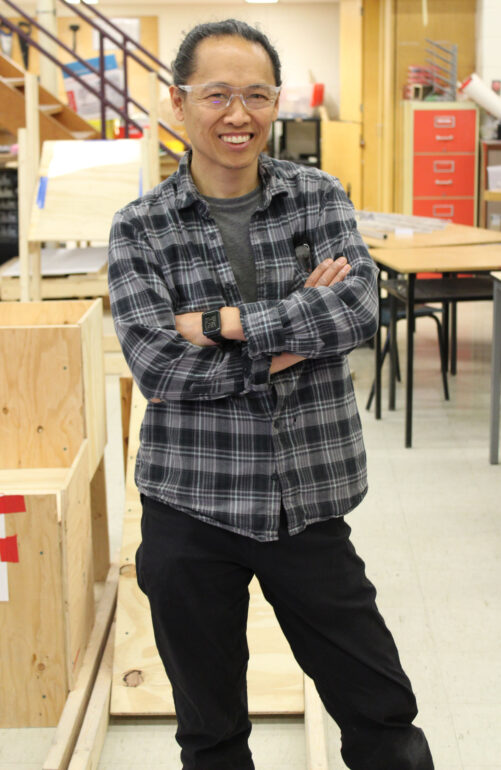
Godofredo Balcita, coach of Absolute Robotics, spoke to Humber News about his team's performance in the first robotics competition. Photo credit: Muhammad Hamza
“Our weak points were because we did not utilize all of the sensors that we had planned on using and the camera, sensors and cameras,” he said.
Balcita said his team should be persistent.
“I think never lose faith,” he said. “Always be professional and work with whatever you have and work with the team that you have.”

